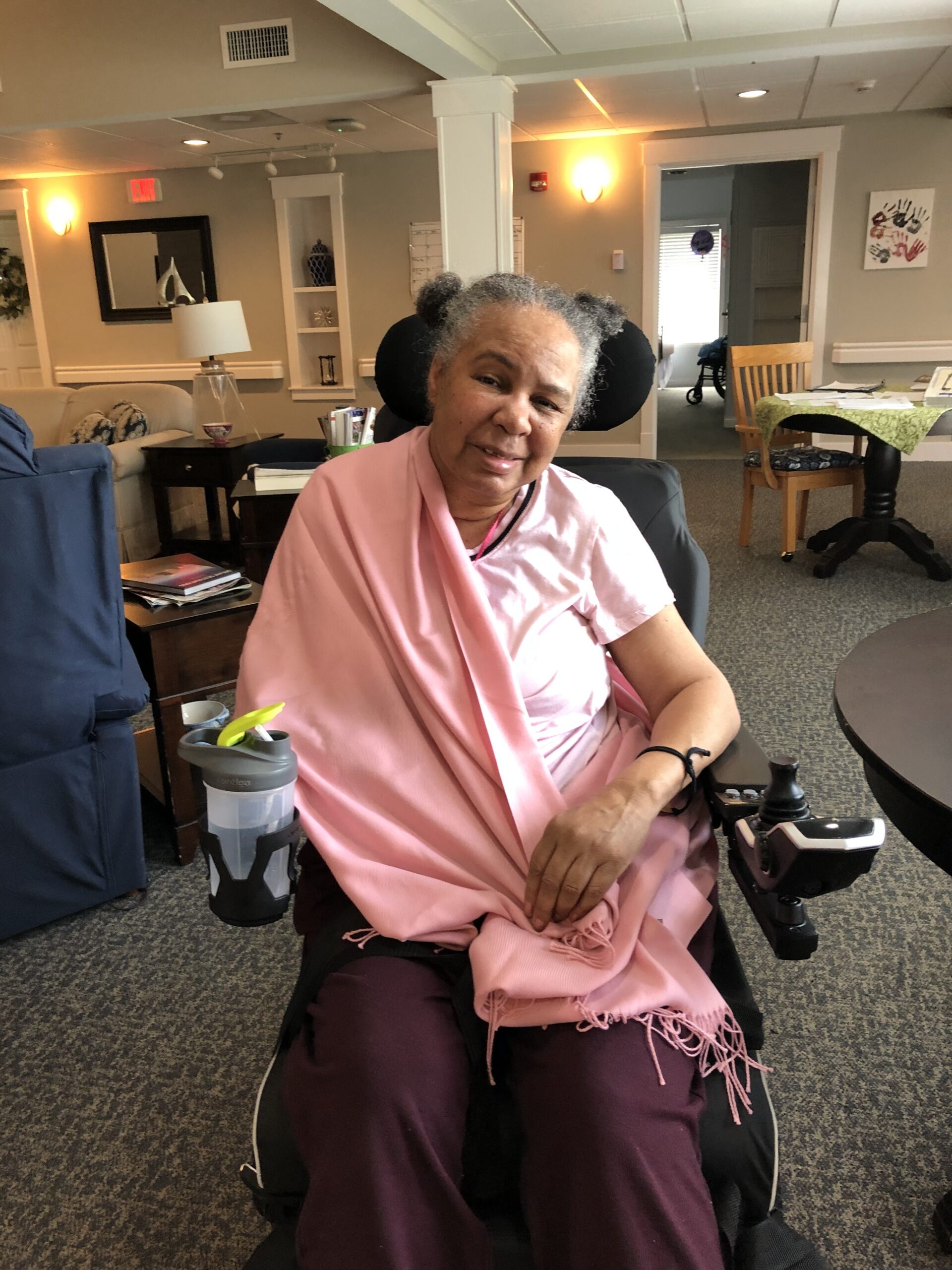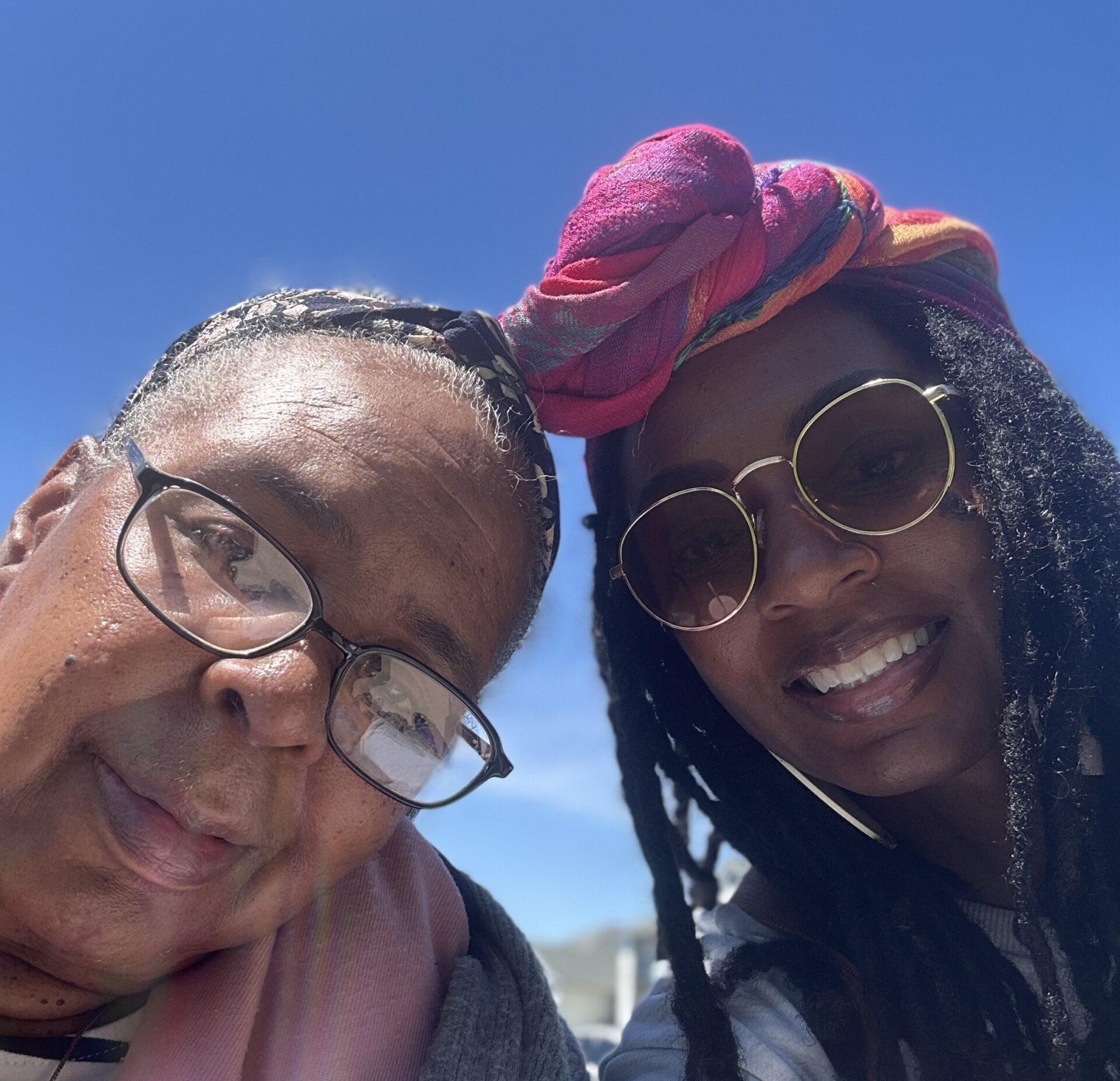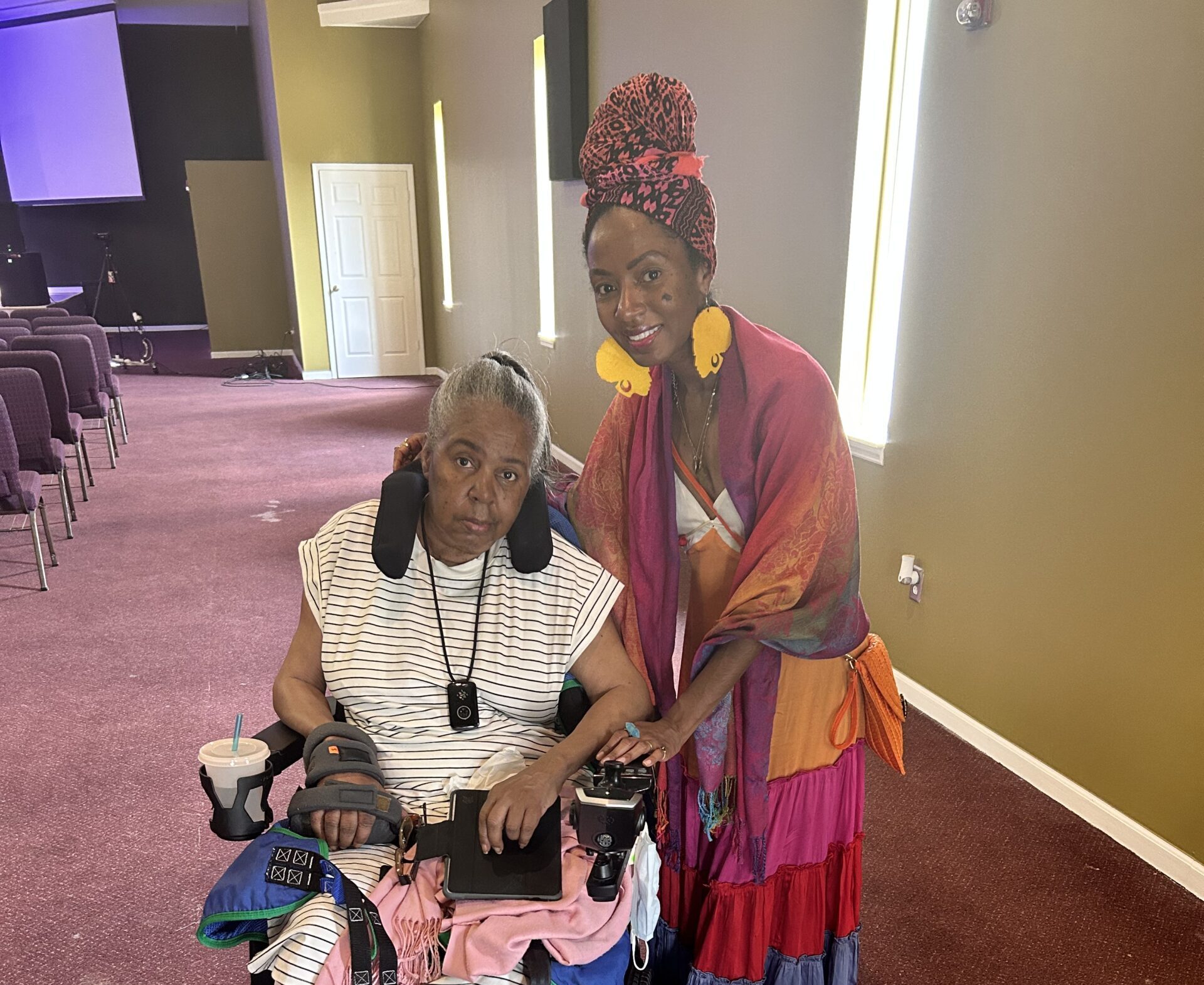The silence that followed my mom’s stroke was deafening. I remember the first days she became fully alert—no tubes, no machines—just silence. She would sit with a blank expression, no greeting, no familiar warmth in her voice. I walked into her room, waiting, hoping for the sound of her laughter, a witty joke, or even a feisty remark. But the words never came.
We questioned the doctors, desperate for answers, but nothing prepared us for the reality of aphasia. Nothing prepared us for the fact that my mom—who was always so vibrant, so expressive—had lost her ability to speak as she once did. My mom was little but loud, always quick with a joke or a sharp-witted comment. The absence of her voice felt like the loss of a piece of her, and in turn, a piece of me.
These days, her communication is different. She uses some words, sounds, and gestures to get her point across. But each day is unpredictable. Some days, she speaks more, and other days, silence returns.
One of the things I cherished most about my relationship with my mom as I grew into adulthood was our conversations. I relied on her advice, her opinions, and her ability to help me navigate life’s uncertainties. Even now, as I care for her, I find myself longing for that guidance—for her to help me problem-solve the challenges that caregiving brings. But in this journey, I am learning something unexpected: I am learning to trust my own voice.
Aphasia may have changed how we communicate, but it has not taken away our connection. In the quiet moments, I listen more deeply. I watch her expressions, I feel her presence, and I know that love doesn’t always need words. And as I care for her, I am also finding strength in myself—the strength to trust my instincts, to make decisions, and to be the voice that carries us forward.
Some days, the silence is still heavy. But within it, I am discovering my own voice—and perhaps, in a new way, I am still hearing hers.






Thank you for being there and taking care of my sister and for learning how to take care of yourself as well as sharing what you have learned with others including me. Love you!
Thank you so much for reading Auntie 💗 Love you too!